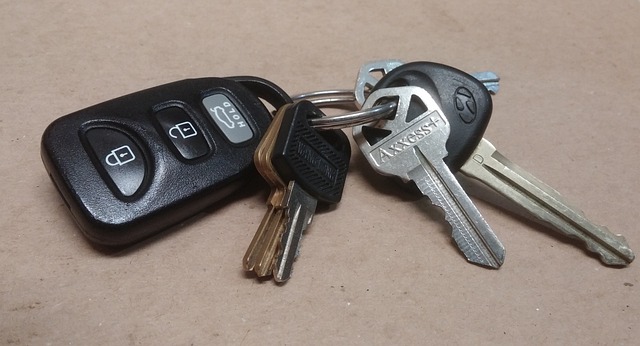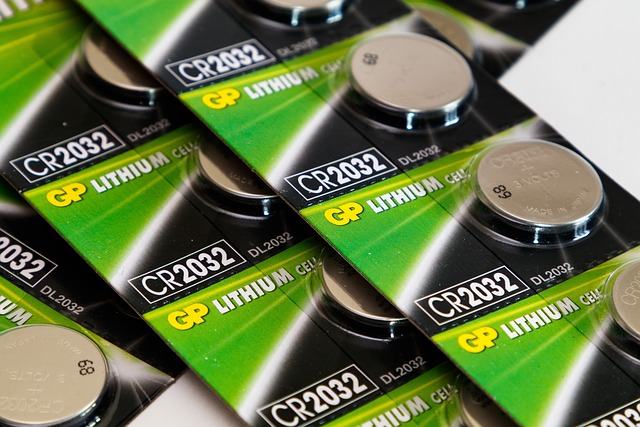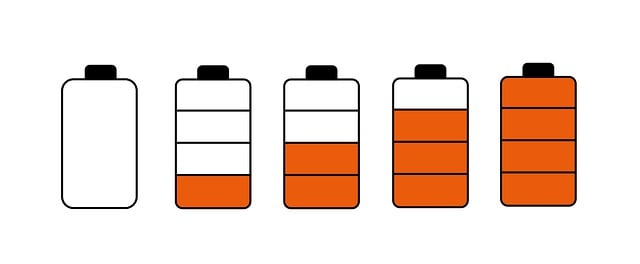Button batteries, found in everyday devices like remote controls and watches, pose environmental and safety risks if improperly disposed of. Due to their potential to cause chemical burns upon ingestion and release toxic substances into the environment, it is crucial to follow state-specific regulations for disposal. For instance, California mandates mail-back programs or collection points, Florida prohibits these batteries from landfills or recycling bins with local collection points, and New York offers disposal through electronic waste recycling programs. The Consumer Product Safety Commission (CPSC) has set federal safety standards for button batteries, requiring clear product labeling to guide consumers on safe disposal practices. These measures are vital for public health and environmental protection, ensuring that the risks associated with improper disposal are mitigated. Compliance with both state and federal regulations is essential for the prevention of accidental ingestion and habitat destruction. Consumers should consult their local waste management authorities or state environmental agency websites to understand the specific disposal guidelines in their area, contributing to a safer and more sustainable future.
Navigating the correct disposal of button batteries can be a complex task due to varying state regulations. This article serves as a definitive guide, breaking down the disposal protocols across the United States. We delve into the critical environmental and safety implications associated with proper button battery disposal, emphasizing the importance of adherence to both federal guidelines and local ordinances. From understanding the national framework set in place to exploring state-specific regulations and available disposal facilities, readers will gain clarity on how to responsibly manage their used button batteries.
- Navigating Button Battery Disposal Across the United States: A Comprehensive State-by-State Overview
- Understanding the Environmental and Safety Implications of Proper Button Battery Disposal
- Federal Guidelines and Their Role in Standardizing Button Battery Disposal Practices Nationwide
- Local Variations: Specific Regulations and Facilities for Button Battery Disposal by State
Navigating Button Battery Disposal Across the United States: A Comprehensive State-by-State Overview

When it comes to disposing of button batteries safely and responsibly, understanding the specific regulations in each U.S. state is crucial for both environmental protection and personal compliance. These small but powerful cells, commonly found in household items like remote controls, watches, and children’s toys, pose a significant hazard if improperly disposed of due to their ability to cause severe internal injuries if ingested. To manage the proper disposal of these batteries, various states have enacted specific guidelines that reflect both state and federal regulations.
For instance, California requires button batteries to be disposed of at designated household hazardous waste collection events or facilities, highlighting a proactive stance on this issue. In contrast, Florida prohibits the disposal of button batteries in trash or recycling containers, directing residents to take them to local collection points for proper handling. These differing approaches underscore the importance of checking state-specific guidelines before disposing of button batteries. Residents in states like New York can often dispose of these batteries at designated electronic waste recycling programs, while others may find specific battery manufacturers offer mail-back programs for their products. It’s essential to consult local waste management authorities or refer to official state environmental agency websites for the most accurate and up-to-date disposal procedures. With a patchwork of regulations across the nation, staying informed on button battery disposal ensures compliance with laws aimed at safeguarding communities and the environment from the potential dangers of these items when discarded improperly.
Understanding the Environmental and Safety Implications of Proper Button Battery Disposal

improper disposal of button batteries poses significant environmental and safety risks. These small, round cells are found in a multitude of household devices, from remote controls to watches and hearing aids. Their size belies the potential hazards they present; when swallowed, button batteries can cause serious chemical burns due to their alkaline composition. Moreover, if these batteries enter waterways, they can release harmful substances into the environment, disrupting ecosystems and potentially leading to habitat destruction for aquatic life. Proper disposal is thus not merely a regulatory requirement but an imperative public safety and environmental health measure. Understanding the local regulations for button battery disposal ensures that these batteries are handled in a manner that prevents accidental ingestion or environmental contamination. This not only safeguards communities and wildlife but also aligns with broader sustainability goals, reflecting a commitment to responsible waste management practices. It is crucial for individuals to be aware of their jurisdiction’s specific guidelines for disposal, which typically involve recycling centers or designated collection points, rather than tossing them into the trash or flushing them down the drain. By adhering to these regulations, we collectively contribute to a safer and more sustainable future.
Federal Guidelines and Their Role in Standardizing Button Battery Disposal Practices Nationwide

In the realm of electronic waste management, federal guidelines play a pivotal role in standardizing disposal practices for button batteries across all U.S. states. These small, coin-sized batteries are commonly found in everyday devices such as hearing aids, remote controls, and watches. The Consumer Product Safety Commission (CPSC) has established safety standards and guidelines for the disposal of these potentially hazardous items due to their high energy density and risk of causing severe chemical burns if ingested. These federal regulations mandate that manufacturers and retailers provide clear labeling and instructions on safe disposal methods, ensuring a consistent approach to handling button batteries nationwide. This uniformity not only safeguards public health but also aids in the effective recycling and recovery of valuable materials from these batteries. The implementation of these guidelines is crucial for preventing accidental ingestion by children and pets, which can lead to serious and life-threatening injuries. By adhering to these federal standards, each state contributes to a safer environment and aligns with the broader objectives of environmental stewardship and consumer protection.
Local Variations: Specific Regulations and Facilities for Button Battery Disposal by State

In the realm of battery disposal, button batteries present a unique challenge due to their size and potential hazards. These small but powerful cells, commonly found in household items like watches, hearing aids, and remote controls, require careful handling upon disposal. At the state level, regulations for button battery disposal exhibit local variations tailored to each region’s environmental and public health considerations. For instance, California mandates that manufacturers of products containing button batteries provide a mail-back program or designate collection points for responsible disposal. In contrast, Florida has established specific recycling facilities where residents can safely dispose of these batteries. These facilities are strategically located to ensure accessibility for all citizens, with signage and educational materials to guide proper disposal practices. Similarly, New York offers a network of designated drop-off locations in collaboration with local electronics retailers, emphasizing the importance of environmental stewardship. Each state’s approach reflects its unique waste management infrastructure and public safety priorities, underscoring the need for consumers to be aware of their jurisdiction’s regulations. It is advisable for individuals to consult their local environmental agency or waste management service for specific guidance on button battery disposal in their area.
button batteries play a crucial role in everyday technology, powering devices from hearing aids to watches. Given their ubiquity and potential hazards when improperly disposed of, it’s imperative for consumers and businesses alike to follow state-specific regulations for disposal. This article has outlined the key considerations for safe and environmentally sound button battery disposal across the United States, highlighting the importance of adhering to both federal guidelines and local ordinances. With a comprehensive state-by-state overview, readers can easily navigate the complex landscape of disposal practices, ensuring they contribute positively to safety and environmental health. It’s clear that understanding and following these regulations is not just a legal obligation but a responsibility we all share for the well-being of our communities and the planet.
